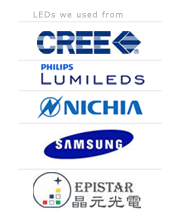News
Search
Popular search



The rebounding LED lighting market spurred Chinese package manufacturers to expand in 2013, with expansions expected to be concentrated in 2014 as a result. But with chip production capacity expansion cycles taking much longer in comparison, subtle changes in the LED chip supply and demand relationship have occurred. With dispersed suppliers and chip prices more susceptible to price fluctuations, chip manufacturers have been unable to greatly raise prices leading to intensified chip shortages.
The LED industry once underwent chip shortages because of an exponential growing backlight market in 2009, large number of Chinese package manufacturers halted production because of raw material shortages. To avoid the same mistake many package companies have signed supply agreements with chip manufacturers. These strategic partnerships are a way of guaranteeing supply, said Figo Wang, Senior Analyst, LEDinside.
Chinese manufacturer Auckson subsidiary Hui’an Auckson Opto signed a “Strategic Partnership Agreement” with MLS Lighting on May 20, 2014. The agreement allows the two companies to strategically cooperate in exchange of market information, product R&D, technological support, and supplies. According to the agreement, MLS Lighting will also continue to buy LED chips valuing RMB 400 million (US $64.06 million) from Hui’an Auckson Opto in the next two years.
Another partnership deal sealed recently was between San’an Opto and Jufei Optoelectronic. According to the agreement, Jufei Optoelectronics will be procuring RMB 200 million worth of LED chips from San’an Opto from March 2014 to March 2015.
A New Sea Union Telecom Technology (NSU) subsidiary in Suzhou also signed a “2014 strategic procurement partnership agreement” on May 5, 2014, with Shenzhen Changfang Semiconductor Light Group. Under the contract, Changfang Semiconductor is required to make monthly supply purchases totaling RMB 5.85 million from NSU over a period of nine months, which amounts to RMB 52.65 million in total.
“As the industry competition intensifies, it will definitely create alliances,” said Tang Guoqing, General Manager, China, Samsung LED. “I support this method.” Cooperation between LED chip and package manufacturers can stabilize partnership relationships for both sides.
“For suppliers they can secure one client, and for us we can get better quality and steady stream of chip supplies at a relatively discounted price,” said Jinhuang Yin, Secretary of Board, Jufei Optoelectronics. The strategic agreement signed between Jufei Optoelectronics and San’an Opto is classified as normal business cooperation, and strengthens the companies relationship, explained Yin. The agreement is beneficial to both companies from different aspects.
During peak seasons, chip manufacturers can encounter supply shortages, but by signing supply partnership agreements in advance it warrants stable supplies, said Ying. Rumors of Chinese chip price upticks were leaked onto the market on May 15, 2014. After calling several industry insiders, LEDinside confirmed with manufacturers there were no price hikes in the chip industry, but supply shortages continued. Therefore, as Ying pointed out, there are alliances formed between chip and package manufacturers can be advantageous.
Major Japanese domestic package manufacturer Honglitronics has not signed a similar strategic partnership agreement as the other three companies mentioned above. Signing a partnership agreement can benefit both companies, and Honglitronic is considering signing agreements in the future, said the company’s Vice President and Secretary Shoutie Deng. “Signing strategic partnership agreements indicate long term cooperation, and usually are structured plans,” said Deng. “Companies that have not signed might have weaker plans.”
Many industry insiders believe strategic partnership agreements signed between chip package manufacturers is a win-win option. However, Yeh Aimin, Secretary of the Board at HC Semitek has a very different opinion. “It’s actually quite useless,” said Yeh. Partnership agreements between LED chip and package manufacturers are a means of promotion, and these agreements are not exclusive. “If I sign the agreement, it doesn’t mean I can’t use chips from other LED manufacturers,” explained Yeh. “In other words, if your chip price and quality do not meet my requirements, I still have to use your products. Even without signing partnership agreements, this kind of cooperation relationship has already existed…This is not a collaboration between shareholders, it is a normal supply and demand relationship.”
The effect of this kind of strategic partnership is similar to a marriage agreement, said Wang. LED chip manufacturers will submit themselves to package manufacturers during supply shortages, and when there is chip oversupply the agreement constrains disloyal package manufacturers. Although, chip manufacturers are unable to raise prices, taking advantage of the supply shortage situation to acquire long term deals is a pretty good option. It is equivalent to trading off revenue from price hikes this quarter to establishing a consistently priced long term supply contract.



